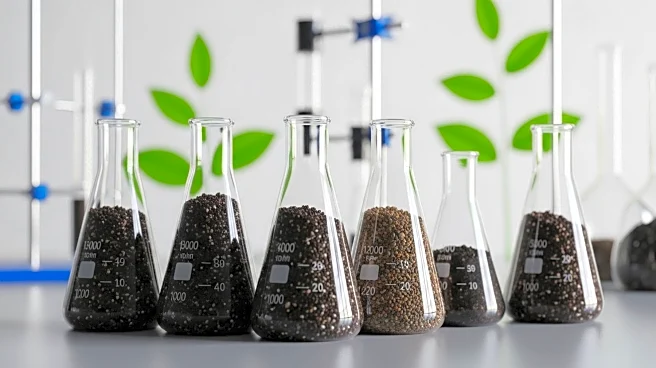What is the story about?
What's Happening?
Researchers have adapted the Bergius process, a century-old method originally used for synthetic oil production, to address current food system challenges. This process involves applying water, heat, and pressure to biomass, converting it into hydrocarbons more rapidly than natural methods. The innovation now allows for the quick production of humus, an organic soil component crucial for agriculture. Humus, rich in polymers, supports bacterial growth and improves soil quality, making it a valuable tool for gardeners and flood zone remediation. Additionally, humus acts as a carbon sequestration agent, with one tonne capable of binding up to 50 tonnes of atmospheric carbon. The process uses waste organic matter, reducing methane emissions from decomposition. Markus Antonietti, director at the Max Planck Institute, highlights the importance of this development in feeding a growing global population and combating poor soil quality.
Why It's Important?
The adaptation of the Bergius process for humus production is significant for agriculture and environmental sustainability. As the global population approaches 10 billion, efficient soil improvement methods are crucial for increasing agricultural yields. Humus production using this process has shown a 20% increase in crop yields in Chinese field trials, offering a promising solution to food security challenges. Furthermore, the ability to sequester carbon in soil contributes to climate change mitigation efforts. By utilizing waste organic matter, the process also addresses pollution concerns, making it a sustainable approach to soil enhancement. The development of this technology by Humify, founded by Antonietti, represents a potential shift in agricultural practices and environmental management.
What's Next?
Humify is working on scaling up the production of artificial humic substances, with plans for a pilot plant capable of producing 3,000 tonnes of humus annually. The company is focused on optimizing energy consumption during biomass heating and cooling to ensure competitiveness. As the technology advances, it may lead to widespread adoption in agriculture, improving soil quality and crop yields globally. The success of this initiative could influence policy decisions related to sustainable agriculture and climate change mitigation, encouraging further investment in innovative soil improvement technologies.
Beyond the Headlines
The development of artificial humus production raises ethical and environmental considerations. The use of waste organic matter for humus creation not only reduces pollution but also promotes circular economy principles. This approach aligns with global sustainability goals, potentially influencing cultural attitudes towards waste management and agricultural practices. Long-term, the technology could drive shifts in land use and farming techniques, emphasizing the importance of soil health in food production and environmental conservation.















